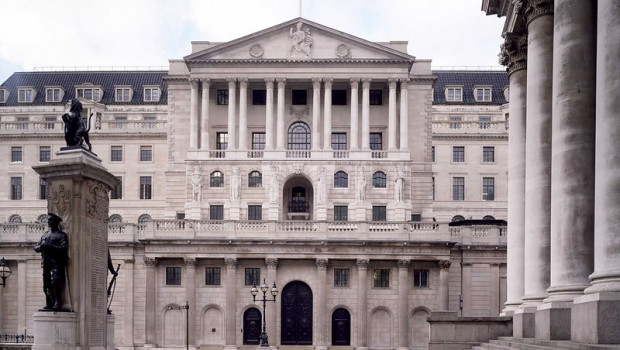Rate rise given 'green light' as demand and costs surge - survey

Consumer demand jumped alongside surging input costs in November, a closely-watched survey showed on Tuesday, fuelling expectations that the Bank of England could put rates up next month.
The flash IHS Markit CIPS UK composite output index was 57.7 in November, marginally down on October’s 57.8 but otherwise above the third-quarter average of 56.3. It also beat consensus for 57.5.
Within that, the UK services business activity index was 58.6, compared to 59.1 in October, while the manufacturing output Index rose to 52.9 from 51.3 a month previously.
Manufacturing PMI also rose, to a three-month high of 58.2 from 57.8. Analysts had been expecting 57.5.
But while customer demand continue to rise sharply, helped by improving economic conditions and the relaxation of pandemic restrictions, the increase in input price inflation was the fastest since the index began in January 1998.
Around 63% of private sector companies reported an increase in their average cost burdens, and only 1% saw a decline.
Chris Williamson, chief business economist at IHS Markit, said: "A combination of sustained buoyant business growth, further job market gains and record inflationary pressures gives a green light for interest rate rises in December.
"Output growth across manufacturing and services came in slightly faster than expected in November, albeit heavily skewed towards the service sector as factories continue to struggle with supply shortages and falling exports.
"A record interest in firms’ costs will further stock fears that inflation will soon breach 5%, with lingering near-record supply delays adding o indications that price pressures may show few signs of abating in the near term."
Duncan Brock, group director at the Chartered Institute of Procurement and Supply, said: "Service firms saw new orders escalate to the highest extent since June and overseas orders rose at the strongest pace since 2018, as the opportunities for international travel accelerated.
"The million-dollar question will be whether the effects of re-imposed restrictions in some European countries will act as a significant obstacle to this progress and whether supply chain tangles unravel a bit more to ease Christmas shortages from factories."
Samuel Tombs, chief UK economist at Pantheon Macroeconomics, said: "The persistence of Markit’s composite PMI above its third-quarter average, and its 54.3 average in the 2010s, will likely reassure wavering Monetary Policy Committee members that the economy can withstand a modest increase in interest rates at its next meeting, on 16 December."
However, he noted: "The risk that the economic recovery stalls for a couple of months in the face of a winter surge of Covid-19 cases remains uncomfortably high. Renewed restrictions on businesses seem unlikely, given that booster vaccines are being rolled out quickly and are keeping a lid on hospital admissions.
"But…further increases in cases likely will prompt some people to spend more cautiously again."
Martin Beck, chief economic advisor to the EY Item Club, said: "Supply side issues contributed to cost and price growth running at record or near-record rates. Given the cost of living challenges faced by consumers, from rising prices to tax rises and the prospect of higher interest rates, the balance between growth and inflation looks less positive.
"But a strong jobs market and the healthy financial position of households and businesses means the EY Item Club doubts that the current ‘growthflation’ will tip over into stagflation."
The IHS Markit CIPS Data were collected between 12 and 19 November.